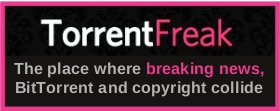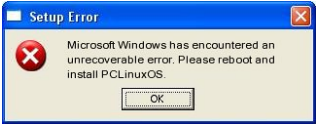| Previous
Page |
PCLinuxOS
Magazine |
PCLinuxOS |
Article List |
Disclaimer |
Next Page |
Testimonial: Making the Transition
|
|
by Dave Fitzgerald (NGIB) Like most folks, I used Windows for many years and DOS before that. I never really cared for that company's marketing strategy -- pay us a lot for updated versions and buy new hardware when we tell you to -- but they satisfied my needs for the most part. I've been experimenting with Linux distros since about 2006, but there was always a few things that kept me from making the leap to Linux a permanent situation. Maybe a particular program wasn't available or I had strange hardware that didn't run right - y'all know the drill. In the past year or so I have begun the search for the Windows replacement yet again and I think I'm nearing the end of the journey. Key to the search is finding something my wife can use, without her changing anything in the way she uses a computer. Generally, she hates technology, and she hates change even more. When Gmail changed their inbox strategy last month, I heard a stream of profanity from the kitchen, directed at me, for changing her inbox. I had to explain to her that Google made the change because they wanted to make her life easier. She then switched the focus of her profanity from me to Google. For my wife, things just need to work without intervention on her part. Learning to edit a config file or doing anything other than being a user will never happen. I set up her computer(s), keep them running, and do my best to insulate her from the change that always happens.  To make the change for her, I've searched for a desktop environment that allows me to setup a configuration for her that closely matches the Windows environment she has used for years. The ability to place launchers in the spots she's used to seeing them, and controlling what appears in the menus is very important. My dear spouse only wants to see things she uses, and does not want to sift through huge menus to find the program she wants. I'm like her in a lot of ways in that I like simplicity, and really dislike it when an OS tries to think for me or starts to look like a Saturday morning cartoon. I have never been a fan of KDE, I really dislike Unity, and while I kind of like LXDE, it does take some config file editing to make it work the way I want it to. The solution for me has been Mate. I can create a Mate desktop that looks almost exactly like her Windows desktop, and make the panel look almost exactly like her Windows status bar. The same launchers in the same place, and a menu that I can customize so she only sees what's necessary for her to see. It's taken me over a year to wean her from Internet Explorer, and she now uses Firefox and Chrome. It's a blessing that these browsers look and feel the same under Linux. Skype used to be a problem under Linux (this was usually the program that kept me/her on Windows), but it appears to work well now. One of the blessings of Linux is that I control when updates happen, and what gets updated. I have received many phone calls at work where my wife is explaining to me that an evil box has popped up on her screen asking her to accept the update and reboot. Antivirus programs are notorious for that, and not needing one is one of the biggest benefits of Linux. As far as which Mate distro, I'll be honest and say I've tried most of them. Each has it's foibles, but I've chosen PCLOS as it is the best for what I need from an operating system. I really like the way some programs are installed directly (LibreOffice and Calibre come to mind), so you get the latest software but inherent stability in the repos. The ability to set up a system and make a live USB is absolutely great in my opinion. I do all the setup and refinement work on one computer, and then I'm able to make an installable USB image of that system which makes it easy to setup multiple computers with the same tweaked OS. The only downside I see to PCLOS is that it does not support Debian packages, which would make it near perfect in my humble opinion. The folks running the repos do a great job though, so this is a small thing generally. The last area of selecting a distro is certainly the most important -- what kind of support is available. There are some distros that expect (require?) you delve into the inner workings of config files, bash scripts, and have 6 terminals open at one time. Merely asking a question can subject you to a tirade of just how ignorant you are and how you're too stupid to use the distro anyway. While I haven't really run into any issues I couldn't solve on my own, I've read a lot of the questions asked on the PCLOS forum, and I'm really impressed by the answers I've seen. Even the questions involving arcane and unique hardware are answered patiently and without the "buy a new computer" tone you hear at other sites. This is really important, since switching from the familiar to the unfamiliar is a daunting task, and it's great to know that real help is available. Yes folks, there is an alternative to Windows, and you do not have to be a programmer to use it. |





